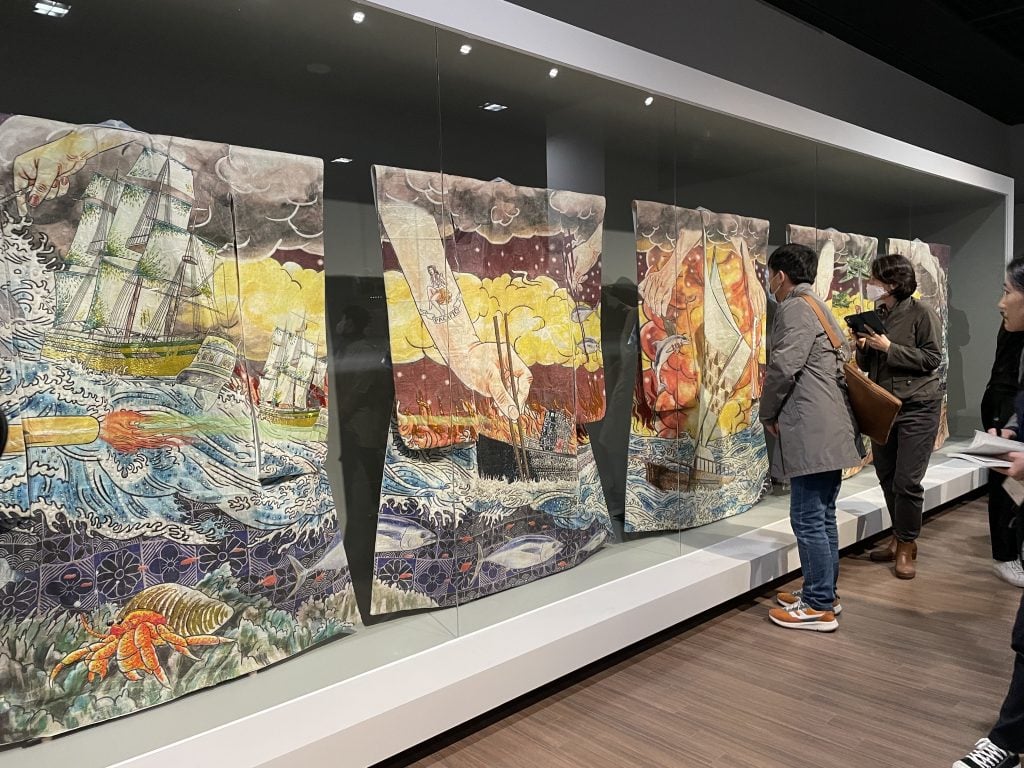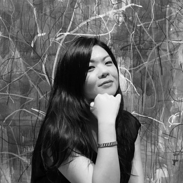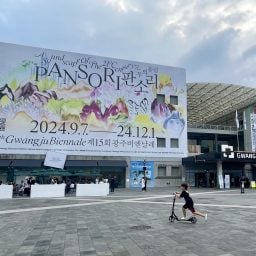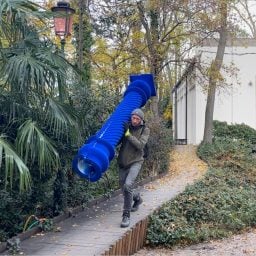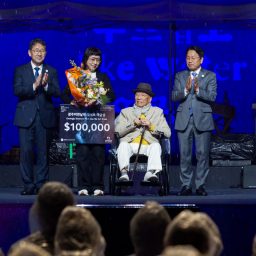This year’s Gwangju Biennale has yet to open to the public, but its organizers are already set on scaling up the event by doubling its national pavilion section in its next edition, hoping to seal its position as Asia’s answer to the Venice Biennale.
Already this year, nine countries are featured with national pavilions at the South Korean exhibition—these include Ukraine, China, France, Canada, Israel, Italy, the Netherlands, Poland, and Switzerland.
Speaking at a press conference on Wednesday, April 5, ahead of Friday’s public opening of the 14th edition of Gwangju Biennale, Yang-Woo Park, president of the Gwangju Biennale Foundation, revealed that the show’s organizers are seeking to host 20 national pavilions for its 15th edition, set to take place in September 2024.
The renowned South Korean art show will have the next exhibition coincide with the 30th anniversary of the inception of the biennale, which was launched in 1994.
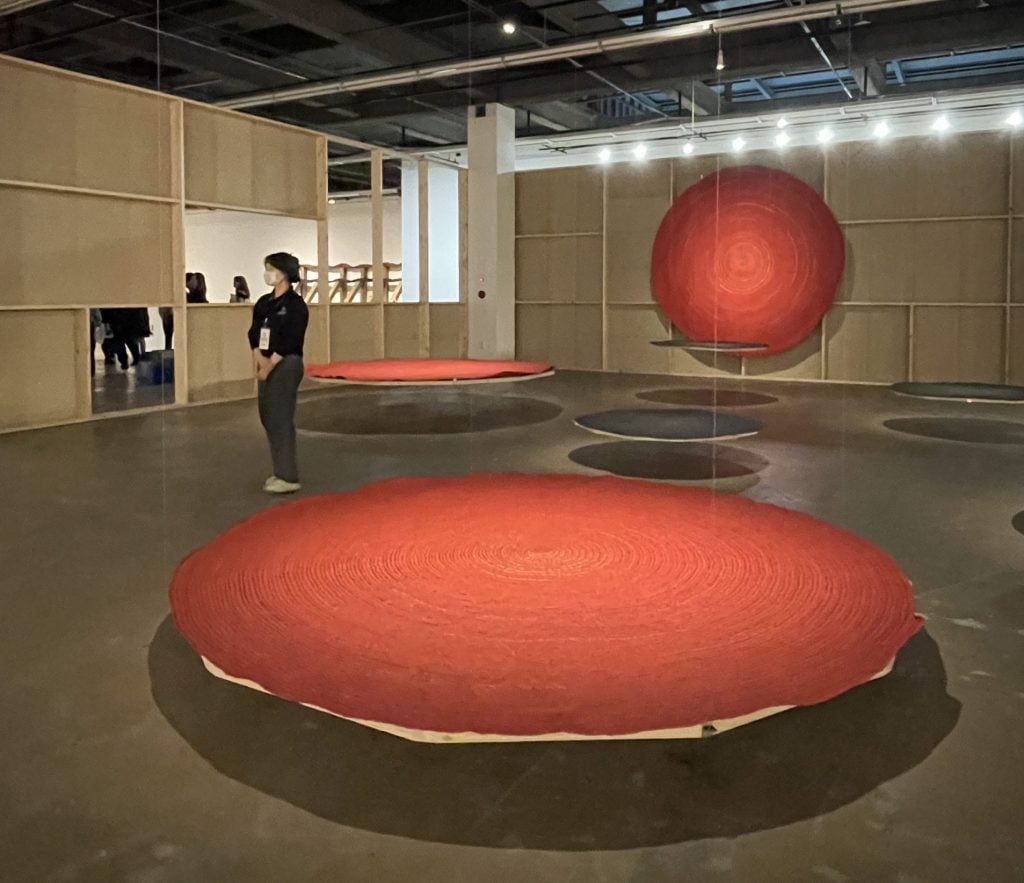
Charwei Tsai, A Temple, A Shrine, A Mosque, A Church series (2022). Gwangju Biennale 2023. Photo: Vivienne Chow.
Gwangju Biennale introduced the national pavilion section in 2018; back then, it had only three countries participating, and was down to just two in 2021 (the original 2020 edition was postponed a year due to lockdowns). The show opening on Friday sees its biggest national pavilion section yet, but this is, apparently, only the beginning of a new era.
“It will be the biggest next year,” Park said, speaking to international press via an interpreter. The foundation has already begun the primary outreach for the upcoming show, as not every country is familiar with the Gwangju event.
“We will come up with a pool,” added Park. “We will then send requests and try to reach out to embassies and consulates.”
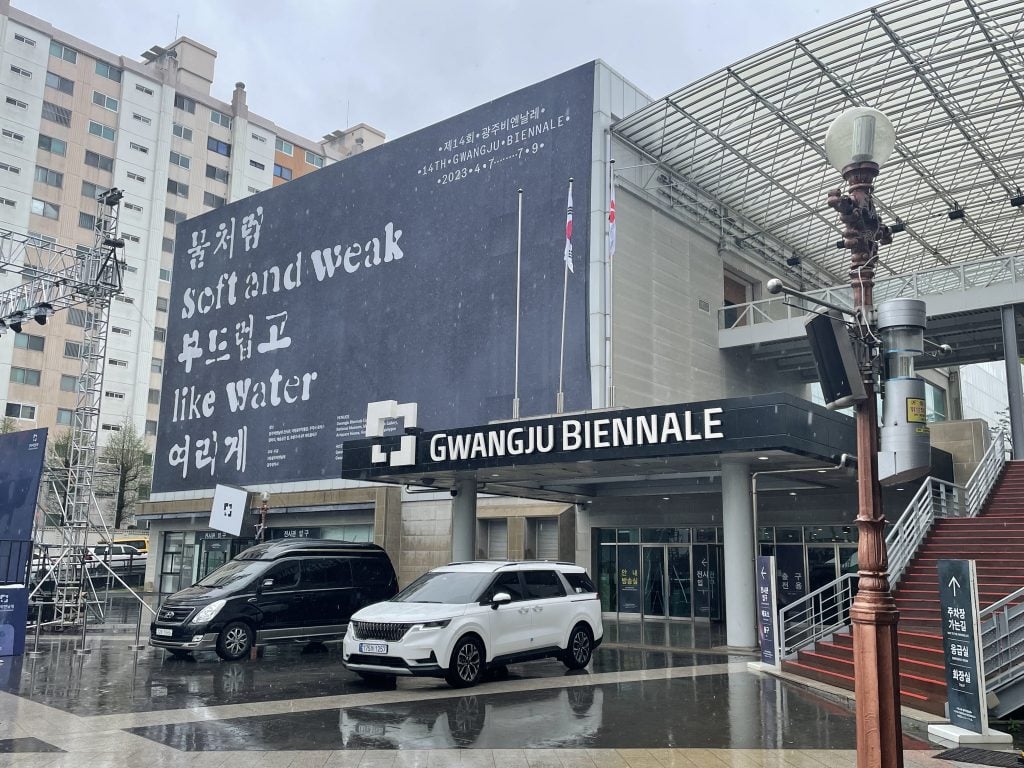
Gwangju Biennale 2023 exhibition hall. Photo: Vivienne Chow.
Gwangju has a ways to go if the aim is to catch up with Venice, which hosted 80 national pavilions last year. The main reason to host more national pavilions in Korea in addition to the main exhibition, Park noted, was to have greater diversity. “We hope to see more artists and their works from different countries represented in their respective pavilions,” he said. “Art lovers visiting the show can appreciate different voices seen through the medium of art, which can be interpreted differently from the main show.”
The 14th edition has been curated by Sook-Kyung Lee, senior curator of international art at London’s Tate Modern, with the theme “soft and weak like water.” The phrase, borrowed from the ancient Chinese text Dao De Jing, dates to around 400 B.C.; the description of the unique qualities of water is a metaphor for the power of softness, which can be even more forceful in face of hard surfaces as it penetrates and seeps through cracks in order to bring about transformation. Resistance, solidarity, coexistence, and care are key words throughout the 79-artist exhibition that spans across five venues. Park noted that the national pavilion exhibitions staged across the city have also responded to the theme.
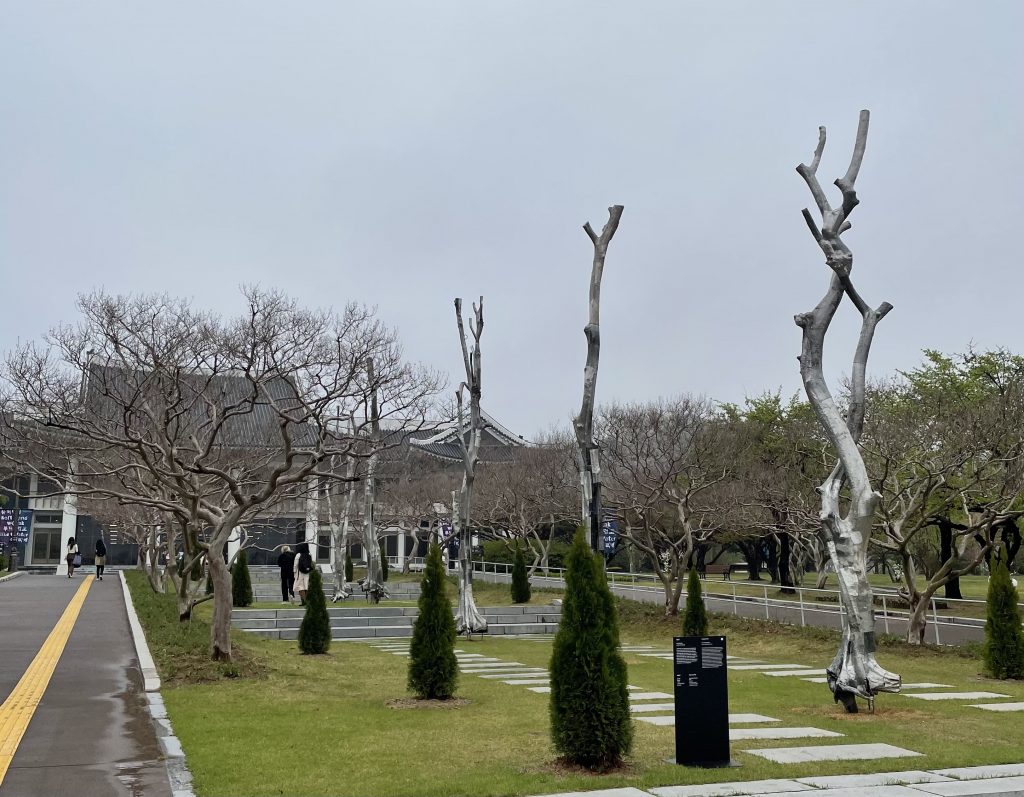
Sopheap Pich, La Danse (2022), on view at Gwangju Biennale 2023. Photo: Vivienne Chow.
Meanwhile, the Gwangju event will also be handing out the first Park Seo Bo Art Prize this year to an artist participating in the biennale. The 91-year-old Dansaekhwa master who recently revealed that he has been diagnosed with lung cancer, donated $1 million to the biennale. The sum is being divided into 10 awards of $100,000 for the next 10 editions.
The award, which aims to support younger artists, is dubbed the Golden Dove prize as the winner will be presented a golden dove emblem in addition to the cash prize.
When asked if the name of the award was inspired by Venice Biennale’s Golden Lion, Park noted that dove is the bird that symbolizes the city of Gwangju, and that the biennale was created to honor the 1980 Gwangju Uprising, a traumatic yet instrumental historical event that laid the foundation for South Korea’s transformation into a democracy. “Gwangju is a city of human rights, peace, and democracy,” Park said.
The Gwangju Biennale opens on Friday, April 7 and runs until July 9.
More Trending Stories:
Was Roy Lichtenstein an Appropriation Artist or Plagiarist? A New Documentary Probes the Ethics of His Multimillion-Dollar Comic Art Empire
The Dealer Who Sold the World’s Most Expensive Coin Has Been Arrested for Falsifying the $4.2 Million Artifact’s Provenance
What I Buy and Why: New York Collector Larry Warsh on His Early Eye for Basquiat, and the Octogenarian Artist He’s Coveting Now
87-Year-Old Artist Barbara Kasten on How Her New Career-Defining Monograph Shows She’s More Than Just a Photographer
Hito Steyerl on Why NFTs and A.I. Image Generators Are Really Just ‘Onboarding Tools’ for Tech Conglomerates
Art Industry News: Rishi Sunak Says There Are ‘No Plans’ to Return the Parthenon Sculptures to Greece + Other Stories
Is This Rolls-Royce the Most Extravagant Car Ever? Designed by Iris van Herpen, It’s Iridescent, Has a Signature Scent… and the Cosmos Inside
Generative Art Sensation Tyler Hobbs Has Filled His Debut London Show With Old-Fashioned Paintings—Painted by a Robot, That Is
The Final Sale of Masterworks From the Collection of Late Microsoft Founder Paul Allen Could Fetch $43 Million at Christie’s
